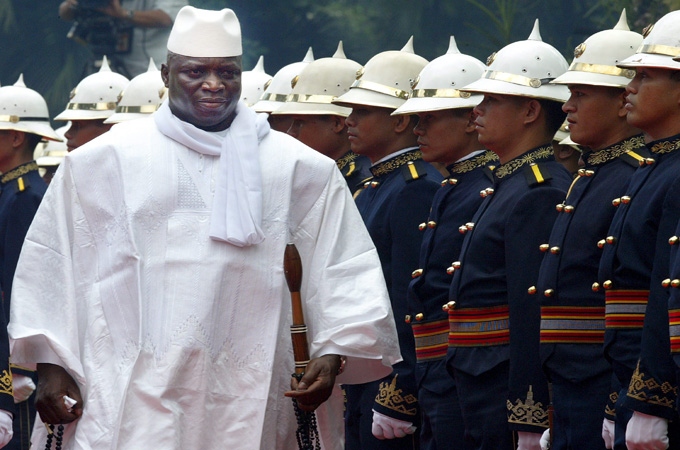EXCITING NEWS: TNG WhatsApp Channel is LIVE…
Subscribe for FREE to get LIVE NEWS UPDATE. Click here to subscribe!
A United Nations, UN Special Representative for West Africa and the Sahel, Mohammed Ibn Chambas has said Gambian President Yahya Jammeh will not be allowed to remain president if he refuses to go at the end of his term in January.
Chambas disclosed this on Wednesday in Dakar in an interview with newsmen. He said Jammeh would face strong sanctions if he refuses to hand over power as the expiration of his tenure.
Jammeh, who took power in a coup in 1994, initially conceded defeat in the Dec. 1 election to Adama Barrow, raising the prospect of an end to his 22 years rule.
Jammeh’s rule was tainted by allegations of widespread human rights abuses.
However, in a dramatic about-face that drew international condemnation, Jammeh then rejected the voting results last Friday, and his party was challenging the outcome at Gambia’s Supreme Court.
Chambas, however, said “for Mr Jammeh, the end is here and under no circumstances can he continue to be president.
“By Jan. 18, his mandate is up and he will be required to hand over to Mr. Barrow.”
He added that Jammeh would be “strongly sanctioned” if he did not step down and hand over power to Barrow, without giving details.
Chambas accompanied a delegation of presidents representing the regional bloc ECOWAS who travelled to Gambia on Tuesday but failed to reach a deal that would see Jammeh step down.
Instead, Gambian soldiers seized the headquarters of the national elections commission and sealed it just hours before the presidents touched down in the riverside nation.
UN Secretary-General, Ban Ki-moon, on Wednesday, said that the takeover was an “outrageous act of disrespect of the will of the Gambian people”.
The building in Banjul remained deserted on Wednesday aside from two armed security guards, while its front gate and ground floor entrances were closed.
“No one has gone to work. I didn’t even try. No one has informed me that I can go back,” elections commission chairman Alieu Momarr Njai said on Wednesday.
The ruling Alliance for Patriotic Reorientation and Construction filed a challenge to the election result, even as the delegation held mediation meetings on Tuesday.
The court has not held a session for a year and a half, and legal experts believe that at least four new judges would need to be hired to hear Jammeh’s petition.
“We do not believe it will be heard by a credible court dedicated to ensuring the integrity of The Gambia’s democratic process,’’ a U.S. Embassy statement said.
Analysts have suggested that the challenge in the Supreme Court, the legal channel for resolving election disputes, could put diplomats in a difficult position.
While such disputes are relatively common in Africa, the international community generally defers to established domestic legal mechanisms for resolving them.
However, in a notable exception, UN troops intervened militarily alongside France to oust Ivory Coast’s then-president Laurent Gbagbo after he used the constitutional court to overturn the 2010 election victory of Alassane Ouattara.
Meanwhile, report says ECOWAS leaders will discuss Gambia at a summit in Nigeria on Saturday.

